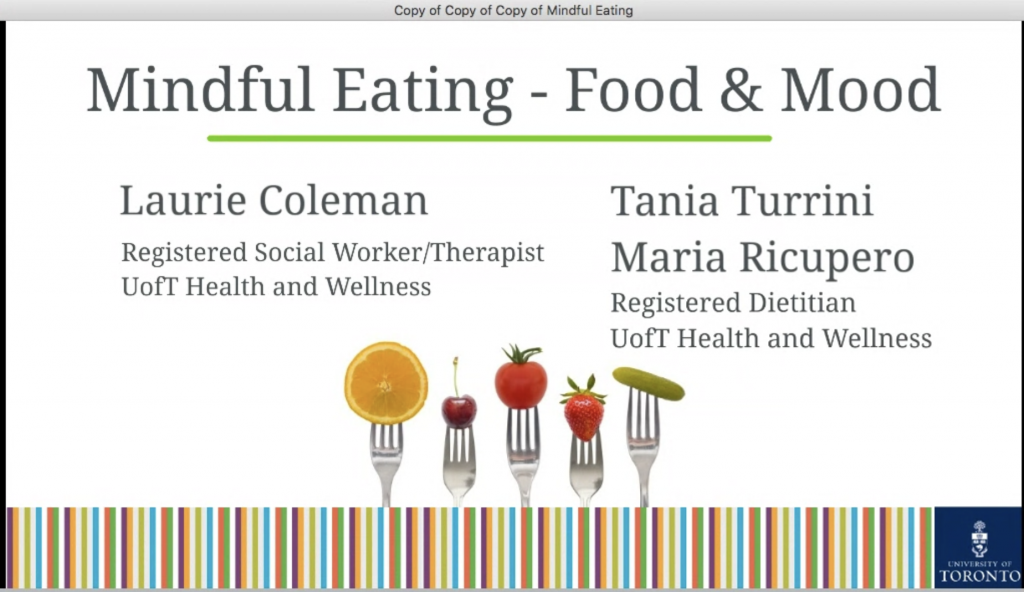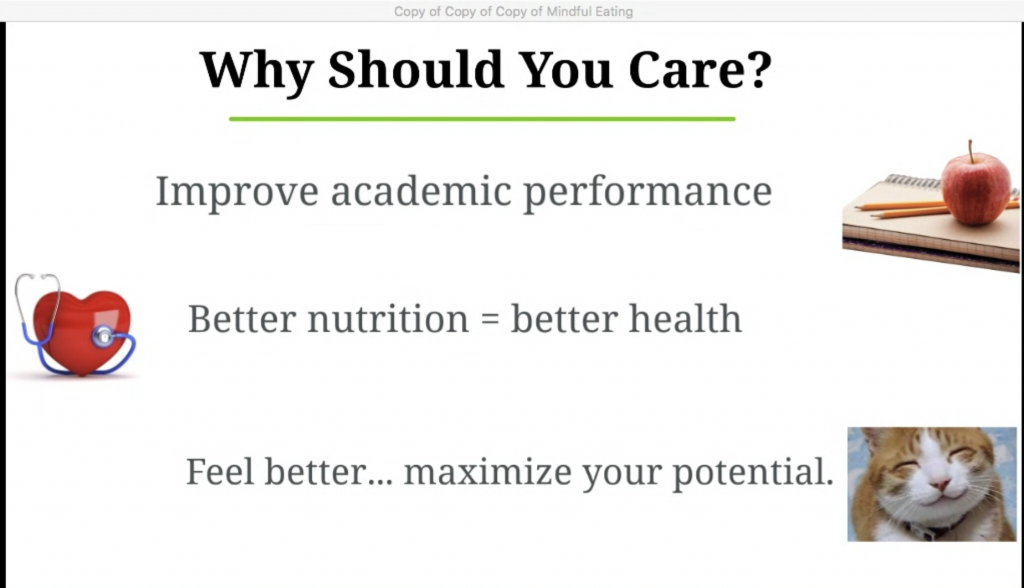Say "I" if your eating habits leave something to be desired. At the start of every week, I vow to eat meals filled with veggies, proteins and healthy carbohydrates. Yet, throughout the week, I find myself scarfing down whole lemon merengue pies, cheese pizzas from Papa Johns and cookies.
Firstly, I know that there is no such thing as "bad food" and that all foods can be enjoyed in moderation. However, struggle is that I can't seem to practice moderation. Essentially, I eat like I'll never eat again, or, like I'm barely surviving a famine.
As a result, I decided to attend a U of T Health and Wellness workshop on eating and mood, to learn about how I could better manoeuvre healthy eating habits and learn to eat food in moderation. The workshop was hosted by a registered social worker and a registered dietitian, and I found it extremely informative, especially as they emphasized the importance of eating mindfully and taking the time to eat, chew thoroughly and enjoy your food.

Here are some of the things that I learned about the connection between food and mood:
1. Food Plays A Heavy Role In Your Academic Success

I wasn't surprised to discover that eating healthily can really impact your health, your academic performance and more. Research shows that there is a direct correlation between students who had a healthy diet and higher and more consistent academic success. While healthy diets are difficult to put in practice––especially for cookie lovers like me––it's important to be mindful, intentional and consistent about your uptake of fruits, vegetables and proteins.
2. Mindful Eating Is About Awareness
Developing healthy eating habits doesn't require restricting your diet to flat tummy tea, smoothies and low-carb onion soups. It's not about avoiding fats or starting a Keto or Paleo diet. Instead, eating mindfully is all about being present while you are eating and taking the time to notice the sensation of eating and enjoy it.
After attending this workshop, I felt inspired to cook a healthy meal with all three important food components: vegetables, starch and protein. Below is a picture of the flavored chicken, stir fry and rice that I combined to make a healthy and yummy meal!
Moreover, I'm hoping to continue to remember to savour each bite of my meals and take the time to truly enjoy what I'm eating.
3. Don't Internalize Negative Stereotypes From Diet Culture
Accidentally missing one meal or eating a snack you've been craving doesn't make you a failure. While diet culture is all about rules, intuitive eating is about a lifestyle and it's about allowing for flexibility.
In contrast, mindful eating encourages us to make time to cook, to eat and to savour your meals. Even if you don't always eat perfectly or you skip or delay meals, it doesn't mean you're a failure.
I, for one, tend to feel so guilty about unhealthy meals that I am not even able to enjoy them. However, attending the mindful eating workshop encouraged me to eat consistently and according to my body's needs––not to beat myself up for failing to live up to a certain standard.

0 comments on “Eating With Intention: Mindful Eating Workshop”